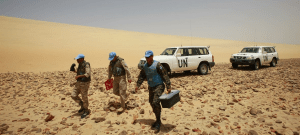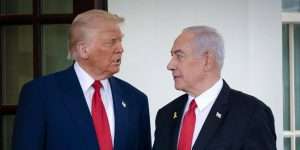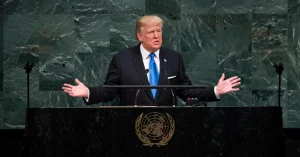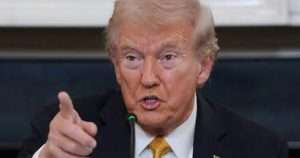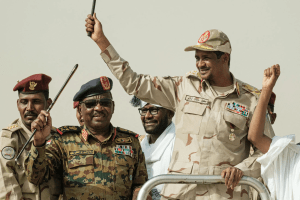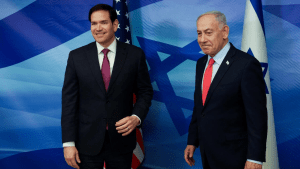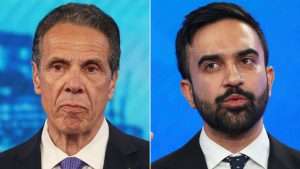UK cashes in on Western Sahara with “bare minimum” support
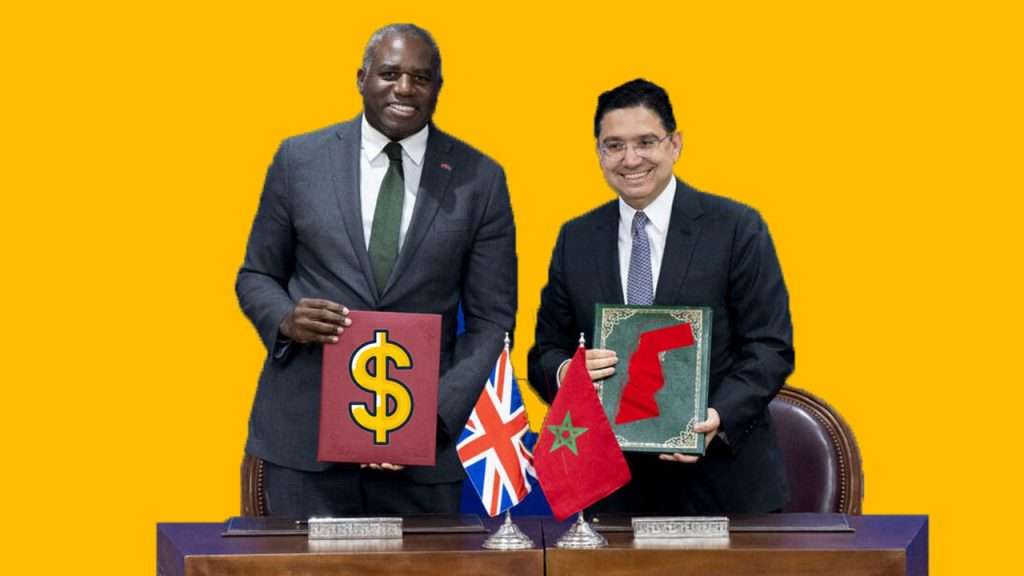
With the UK’s backing of Morocco in Western Sahara prompting dramatic headlines in Rabat, it appeared the deal was a milestone for the North African country’s claim to the disputed territory.
However, an expert on North African politics said Britain has done the “bare minimum” – paying cheap lip service in exchange for handsome returns.
The UK government announced on 1st June its support for Morocco’s autonomy plan, echoing the declaration of other international backers when it called the proposal “the most credible, viable and pragmatic basis for a lasting resolution of the dispute”.
While Rabat attempted to portray the UK’s shift as a revolutionary moment, unlike Spain or France’s support, there was no recognition of Moroccan sovereignty over Western Sahara and the territory’s status remains “undetermined” in British government documents.
Riccardo Fabiani, project director for North Africa at the NGO, the International Crisis Group, said:
“It’s really a way for the British government to say we’ve taken a step but we’re going to be very cautious and very pragmatic about it. We want to keep our cards close to our chests, and we want to make sure that we are not selling all our goods without getting anything in return.”
“At the end of the day, this revolution is, paradoxically, the bare minimum compared to what others have done.”
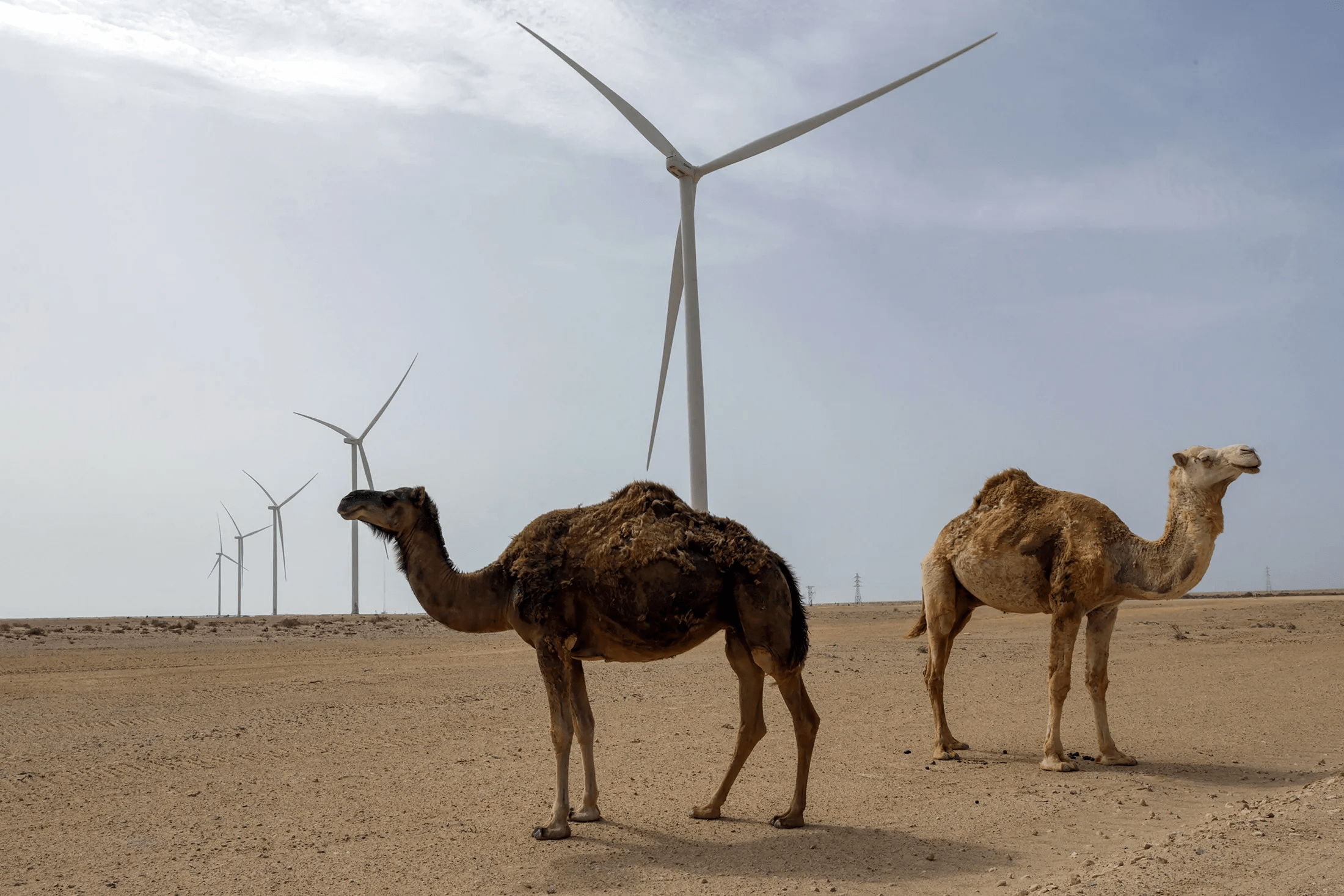
Since the Spanish left in 1975, Western Sahara has been embroiled in an armed dispute, pitching the irredentist government in Rabat against the pro-independence paramilitary force, the Polisario Front.
Including conditions such as a commitment from Rabat to support the principle of self-determination and to restart negotiations with the Polisario Front makes the UK “one of the least supportive countries that has expressed support for the autonomy plan” according to Fabiani.
Nonetheless, Morocco’s foreign minister Nasser Bourita said it contributed “greatly to advancing this momentum”, with the staunchly pro-Rabat outlet, Moroccan World News calling it a “landmark diplomatic meeting”.
The UK joins the US, Israel, France, Spain and other European countries in supporting Morocco’s autonomy plan for the region but unlike France and Spain, it has been more effective in extracting positive concessions in return.
$33bn in procurement opportunities have been unlocked, including involvement in the $1.2bn Casablanca airport project and the country’s national healthcare reforms, worth over $2bn.
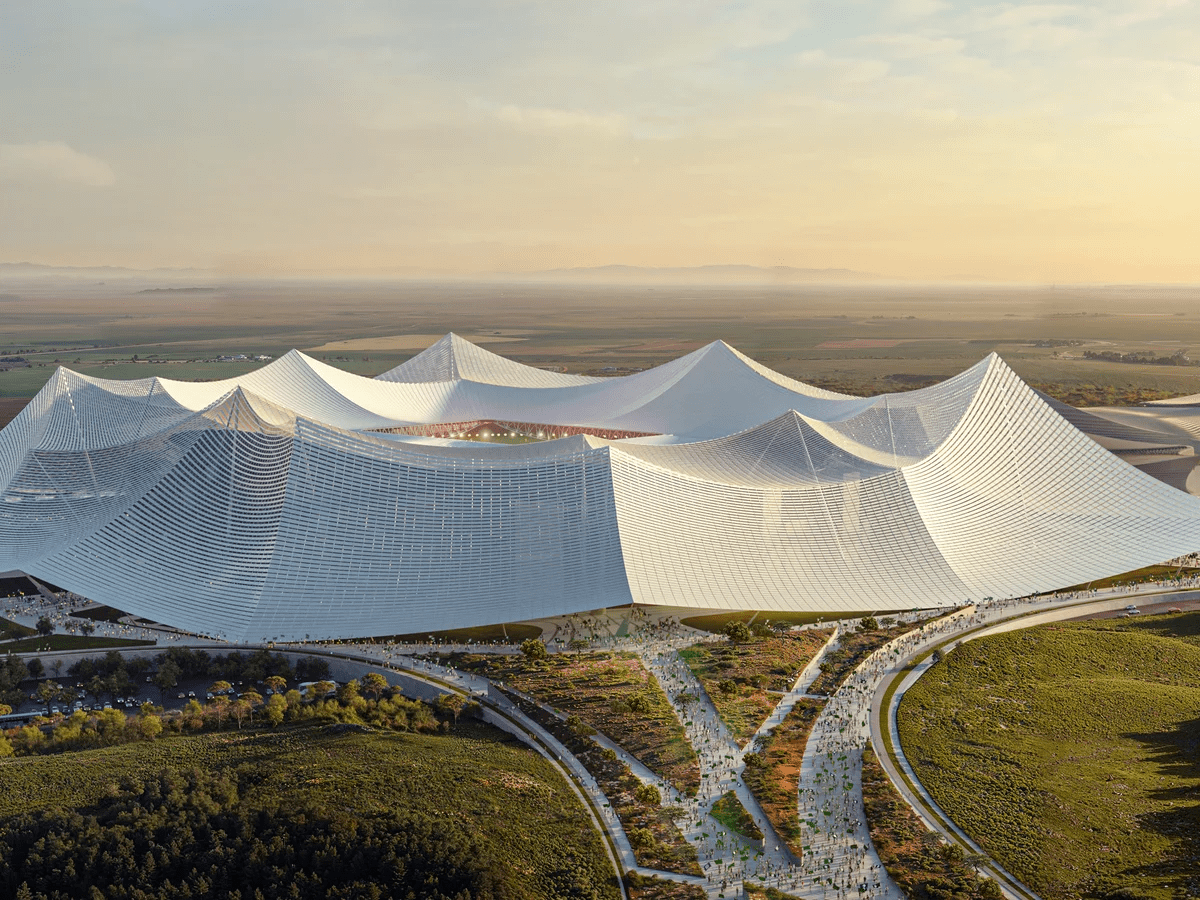
Fabiani said: “Morocco didn’t really have as much leverage on the UK as it does on France and Spain and eventually it had to resort to incentives. These incentives were more of a business type than anything else.”
“This is also a little bit of criticism that was made in the past in relation to what Spain did, particularly what France did. They took some very bold steps forward, and now they don’t really have much leverage left in their relationship with Morocco.”
Migration was a key issue which Rabat has used on its European neighbours in the past.
After Madrid allowed the leader of the Polisario Front to receive treatment for Covid-19 in Spain in 2021, Morocco retaliated by flooding Ceuta, a Spanish enclave on the Moroccan coast, with around 10,000 migrants.
Terrorist attacks in which Moroccan nationals or immigrants took part in the 2000s and 2010s made both Spain and France nervous of mounting migrant pressure.
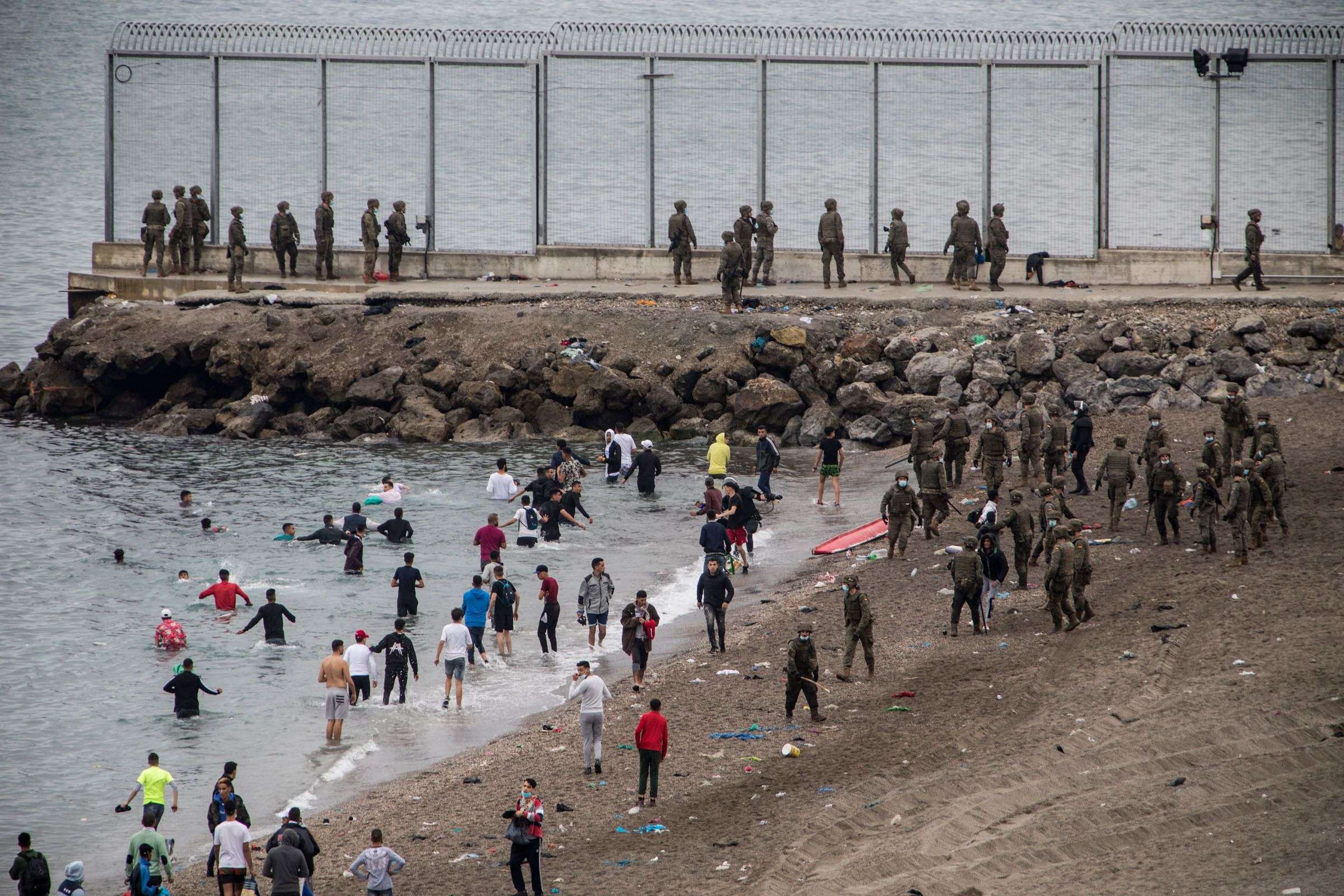
French president Emmanuel Macron declared his government’s backing of Rabat’s sovereignty over Western Sahara in a surprise foreign policy u-turn last year.
“I would say most external powers look at Western Sahara with an eye for international law,” said Fabiani.
“You cannot really go too far unless you’re ready to completely undermine your international opposition and everything else you stand for, which is not something that would be unheard of. That’s what the French and to an extent other countries did, but I think the British are trying to do this a little bit more effectively.”
During the announcement of the new deal, the UK Foreign Secretary David Lammy was quick to point out the vast potential of the Moroccan economy.
The trade between the two countries is already valued at $4bn annually but looks to be growing rapidly.
One great promise in the future of their relationship is the proposed Xlinks project which would connect the UK to Morocco’s green energy industry.
If built, the 2500 mile connector cable would be the world’s longest undersea power cable, and could supply up to 8% of the UK’s electricity.
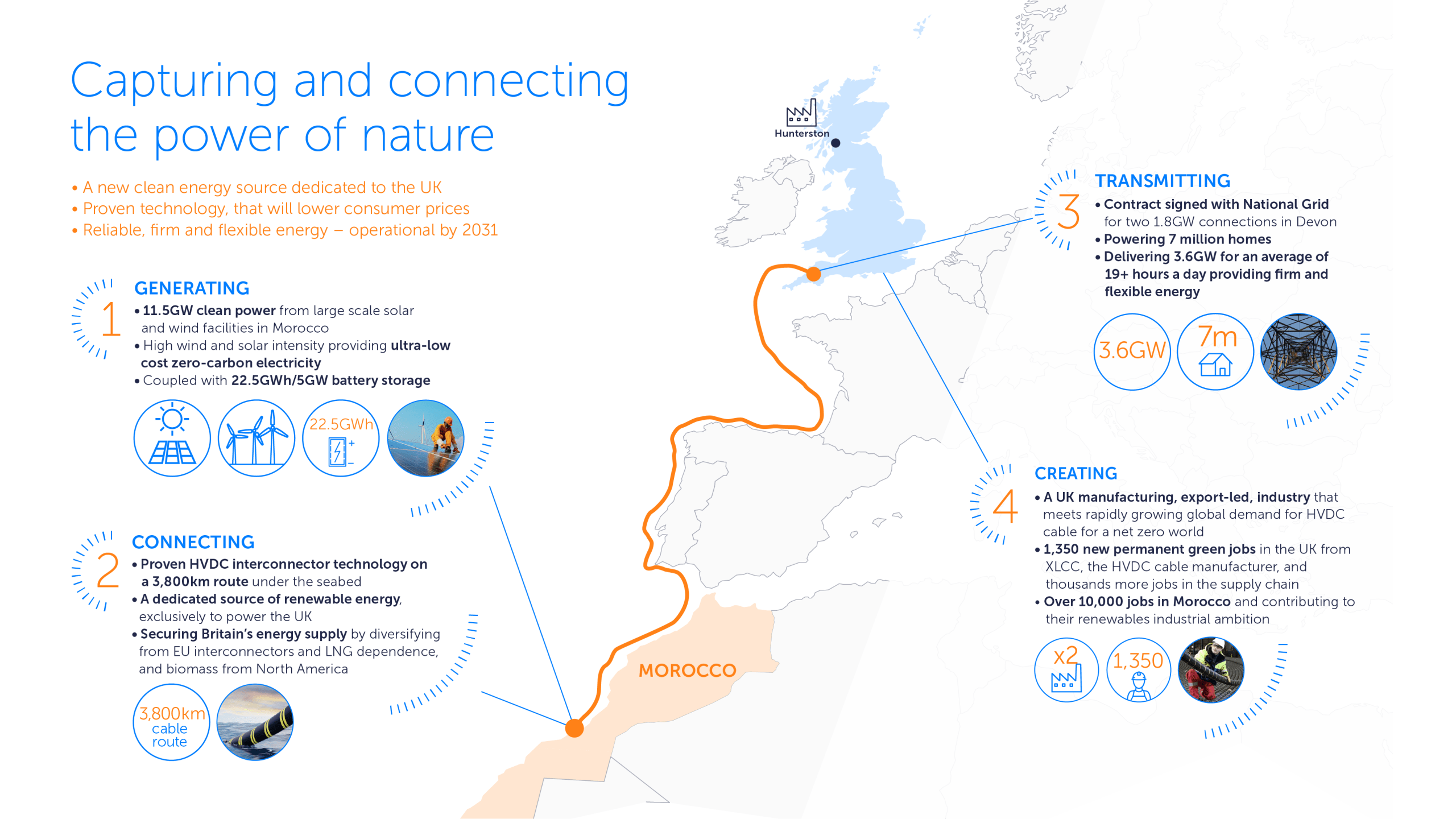
Fabiani says this is a real opportunity and that there are already “significant” business interests behind it.
The green hydrogen mega-projects Morocco approved in March will also be on the UK’s radar.
Rabat plans to invest $32.5bn in green hydrogen projects to produce ammonia, steel, and industrial fuel at a time when European countries frantically search for renewable energy sources.
“If you’re really banking on that, and you’re really trying to develop this kind of business ties with Morocco right now, as a European or Western country, you really cannot afford continuing to take a very neutral stance on the Western Sahara conflict,” said Fabiani.
“You really need to show your Moroccan interlocutors that at the very least, you’re evolving, you’re moving closer to the Moroccan position.”
These energy projects could provide the long-term driving force needed to sustain UK-Moroccan relations and bring the two countries closer together.
Again business seems to rule the settlement of the bitter Western Sahara dispute, with questions of international law sidelined in favour of self-interested realpolitik.
In this, the UK seems to have excelled, this latest deal showing Morocco’s desperation to secure international approval its machinations in Western Sahara.
Arab Weekly, Morocco World News, Le Monde, ecfr.eu, African Energy Portal, The Independent
Want to chase the pulse of North Africa?
Subscribe to receive our FREE weekly PDF magazine





